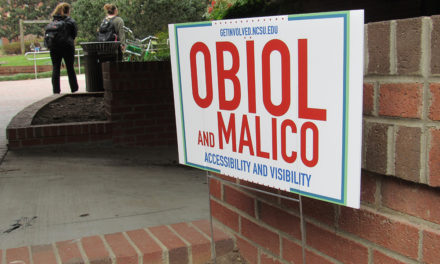TAARI COLMAN | Staff Writter
A new course was added to the Department of Women’s and Genders Studies at Rutgers University in January of 2012.
Instructed by Kevin Allred, a doctoral student at Rutgers, “Politicizing Beyoncé” is a class dedicated to more than just the vocalists’ very successful musical career.
In an interview with Rutger’s, Allred revealed many of his thoughts and beliefs on the matter.
The course came about after four semesters of teaching Women’s Studies 101 at Rutgers, a class in which Allred and his students often discussed Beyoncé and her relationship with being a “girl power” role model and a sexual object for patriarchal society.
However “Politicizing Beyoncé” delves further past that issue and into others such as her control over her aesthetic and the difference between empowering and stereotypical in exposure of her body.
Allred said, “While other artists are simply releasing music, she’s creating a grand narrative around her life, her career, and her persona.”Class discussion often opens other doors of conversation about artists such as Billie Holiday, Lady Gaga, Adele, and Amy Winehouse.
Allred believes that an important shift must occur; rather than students simply consuming media, they should take an active part in engaging in what they are hearing and the nuanced messages that they might be overlooking.
Allred grew up a homosexual white male in Utah and was drawn to the works of black feminist writers at a young age because he felt that racism, homophobia, sexism, and classism were all oppressive structures under which most people live.
Allred felt connected to the black feminist writers because their experiences hit home with the ones he had himself. According to the Rutgers Interview, Beyoncé’s second studio album, B’day, is what inspired Allred to connect his love of music with his interests in politics and social regimes.
Yet, Rutgers University is not the only university interested in classes that seem driven by Pop-Culture icons.
At Georgetown University, the Department of Sociology has a course entitled, “Sociology of Hip Hop: Urban Theodicy Jay-Z” and the University of South Carolina has the, “Lady Gaga and the Sociology of Fame” course.
Universities seem to be moving into an era of being more comfortable with using modern, physical examples instead of relying on students’ ability to comprehend a world before they were operating members of the society being described.
At N.C. State, the pop-culture course selections are generic and include titles such as “Black Popular Culture” and “Modern Chinese Popular Culture.”
Allred says, “When students don’t respond to theory or dense readings, it’s often easier to see things play out in the world around them.”
!!!!!!!!A new course was added to the Department of Women’s and Genders Studies at Rutgers University in January of 2012.
Instructed by Kevin Allred, a doctoral student at Rutgers, “Politicizing Beyoncé” is a class dedicated to more than just the vocalists’ very successful musical career.
In an interview with Rutger’s, Allred revealed many of his thoughts and beliefs on the matter.
The course came about after four semesters of teaching Women’s Studies 101 at Rutgers, a class in which Allred and his students often discussed Beyoncé and her relationship with being a “girl power” role model and a sexual object for patriarchal society.
However “Politicizing Beyoncé” delves further past that issue and into others such as her control over her aesthetic and the difference between empowering and stereotypical in exposure of her body.
Allred said, “While other artists are simply releasing music, she’s creating a grand narrative around her life, her career, and her persona.”Class discussion often opens other doors of conversation about artists such as Billie Holiday, Lady Gaga, Adele, and Amy Winehouse.
Allred believes that an important shift must occur; rather than students simply consuming media, they should take an active part in engaging in what they are hearing and the nuanced messages that they might be overlooking.
Allred grew up a homosexual white male in Utah and was drawn to the works of black feminist writers at a young age because he felt that racism, homophobia, sexism, and classism were all oppressive structures under which most people live.
Allred felt connected to the black feminist writers because their experiences hit home with the ones he had himself. According to the Rutgers Interview, Beyoncé’s second studio album, B’day, is what inspired Allred to connect his love of music with his interests in politics and social regimes.
Yet, Rutgers University is not the only university interested in classes that seem driven by Pop-Culture icons.
At Georgetown University, the Department of Sociology has a course entitled, “Sociology of Hip Hop: Urban Theodicy Jay-Z” and the University of South Carolina has the, “Lady Gaga and the Sociology of Fame” course.
Universities seem to be moving into an era of being more comfortable with using modern, physical examples instead of relying on students’ ability to comprehend a world before they were operating members of the society being described.
At N.C. State, the pop-culture course selections are generic and include titles such as “Black Popular Culture” and “Modern Chinese Popular Culture.”
Allred says, “When students don’t respond to theory or dense readings, it’s often easier to





